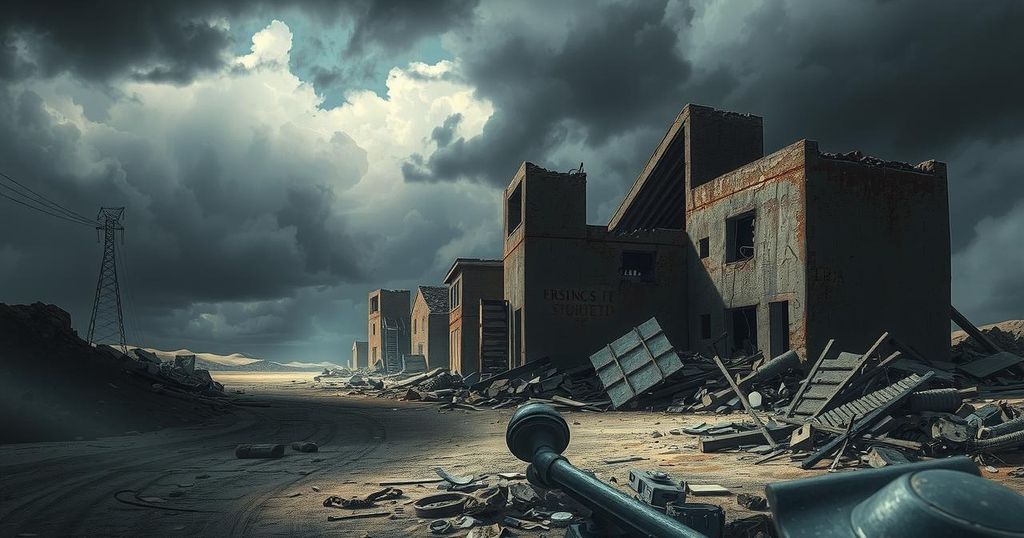Iran’s Strategic Dilemma Amidst US and Israeli Military Actions

The article discusses Iran’s response to recent US and Israeli strikes on the Iranian-backed Houthis in Yemen and Hamas in Gaza. It highlights Iran’s diplomatic efforts to strengthen ties with Russia and China and its condemnation of foreign military aggression. The uncertainty surrounding Iran’s proxies raises concerns about their future effectiveness and Iran’s influence in the region.
In recent events, the United States has conducted strikes against the Iranian-backed Houthis in Yemen, while the Israel Defense Forces (IDF) have targeted Hamas in Gaza. This situation has left Iran in a state of confusion regarding its response, as it remains apprehensive that these strikes could escalate into a larger confrontation — one for which it feels unprepared. Meanwhile, Iran’s supreme leader has advised the nation not to place trust in any gestures from the Trump administration, placing Tehran in a challenging position.
On Monday, Iranian Foreign Minister Abbas Araqchi met with Russian Deputy Foreign Minister Alexander Grushko in Tehran, where they emphasized the importance of expanding bilateral relations and fostering regional peace and stability. Iranian state media reported that Iran has been supplying kamikaze drones to Russia for use against Ukraine. Araqchi noted the strengthening ties between Iran and Russia across various domains and highlighted efforts to identify further avenues for cooperation.
Discussions during the meeting also referred to recent talks in China involving delegations from Russia, China, and Iran. These talks were focused on nuclear issues and aimed at securing mutual interests and upholding international law, as reported by Iranian state media, as Iran seeks support from both China and Russia amidst escalating tensions.
Araqchi denounced the military actions of the US and UK in Yemen, as well as the Israeli actions against Palestinians, during a Monday event with foreign ambassadors. He urged Muslim nations to take further action during Ramadan in response to these issues, signaling Iran’s ongoing commitment to resist perceived aggression from the US and its allies.
Iran aims to achieve multiple objectives simultaneously: strengthening ties with Russia and China, alleviating the sanctions it faces, and promoting its agenda against the US and Israel. Amir-Sa’eed Iravani, Iran’s ambassador to the United Nations, also condemned aggression against Iran and criticized the provocative rhetoric from US officials. Iran appears to prioritize diplomacy in addressing the strikes from the US and Israel.
However, the pressing question for Iran is whether it can maintain its distance from the Houthis and simultaneously support its alliances. Historically, Iran has contributed to the strengthening of the Houthis, the Assad regime, and Hezbollah. If Iran does not carefully navigate its alliances, it risks losing influence over its proxies, which may falter under current pressures, potentially transforming them from assets into liabilities.
In summary, Iran faces a complex geopolitical challenge as it navigates recent strikes by the US and Israel against its allies. The Iranian leadership is attempting to balance its diplomatic relations with Russia and China while resisting external aggression. The future of Iran’s proxies in the region hangs in the balance, as their viability is threatened by ongoing military actions, compelling Iran to reconsider its support strategies.
Original Source: www.jpost.com








